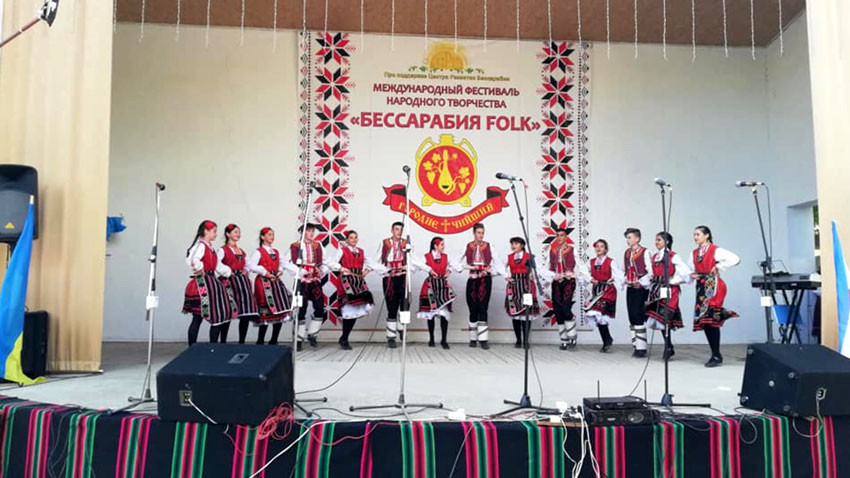On 29 October Bessarabian Bulgarians mark their day. But more important than the day itself is the idea of popularizing the fact that there are such Bulgarians living in other countries.
The first Bulgarians to have settled in the lands of the historical geographic region of Bessarabia in 1773 were invited to leave the village of Alfatar near Silistra by General Pyotr Rumyantsev, a military commander of the Russian army during the 1768-1774 Russo-Turkish war.
“After that, every time the Russian army marched towards the Bosphorus there were such waves, the biggest exodus being in the early 1820s,” says Rayna Mandzhukova from the Bessarabian Bulgarians Centre in Bulgaria.
According to unofficial data, in our day, there are close to half a million Bessarabian Bulgarians living within the bounds of Moldova and Ukraine, and they hold a minority status. Without doubt their most important mission is to uphold their national identity by preserving traditions and their native language. The discussions still continue of whether the law on education, voted in Ukraine in 2017, which establishes Ukrainian as a language of the process of education, will hamper Bulgarian language study at the schools there.
“The law does not aim to suppress minority languages, it aims to consolidate the role and the status of the Ukrainian language as an official language of the country and as part of its national security,” Rayna Mandzhukova says. “I do not believe the Bulgarian language is at any risk because of this legislation. It is at risk because – and I will use strong words here – more and more often in Bulgarian families, the parents talk to their children in Russian. This is a vogue that harms the preservation of the Bulgarian spirit more than the legislative amendments.”
Another problem, Rayna Mandzhukova says, is connected with the education of Bessarabian Bulgarians in this country.
“At this precise moment our organization is fulfilling one of the tasks that the state should have taken care of,” she says. “Since 1993 young people have been coming here to obtain an education, but in all of these years the state couldn’t be bothered to create a register or to follow up what has happened to each one of them – whether they have remained in Bulgaria, whether they have returned to the countries they came from, or whether they have gone to live in some third country, or how they have fared professionally. This is a problem we have raised so many times but we are still paying for the education of these kids – with the taxpayers’ money – without ever taking an interest in where they have ended up.”
With the introduction of European legislation the visa and residence regime changed, Rayna Mandzhukova goes on to say. This means that for Bessarabian Bulgarians to start their studies in this country they would have to tackle all of the red tape in 90 days. Yet, it takes a month and a half of going from government office to government office to have just a residence certificate issued. Another obstacle is that at the point in time these young people want to come and study here they are still minors – they finish their secondary education at 17 and are not entitled to a bank account, yet scholarships are not paid in cash, only by card. Despite these difficulties Bessarabian Bulgarians still cling to their identity.

“Because we are Bulgarian, because that is the way we were raised in our families, in our social environment,” she says. “You cannot have wings if you do not have roots. And if we do not show our children where our roots are, if we do not help them reinforce these roots, none of us have a future. I believe that Bulgaria will live on, but it is better that it lives on with us all.”
Photos: Center of Bessarabian Bulgarians in Bulgaria
Every Bulgarian school abroad has its own story, and that of the Rodna Stryaha Bulgarian school in Cyprus began in 2015. Its foundations are built on the dream of a Bulgarian teacher - when one day Bulgarian children decide to return to their..
President Rumen Radev will today attend the opening ceremony of Forest Week in front of St Alexander Nevsky Cathedral. The theme of this year's celebrations is "A century of eternal creation, preservation and care!" This year marks the 100th..
For 100 years, foresters in Bulgaria have been organizing Forest Week. A concert entitled “A century of eternity” on 7 April will give the official start to the initiative dedicated to the planet’s lungs. And though it has been a century since..
For the 32nd time, the Children's Easter Festival will bring together Bulgarian children from different countries in Bosilegrad, Serbia, giving them a..
In 1992, a child from Georgia packed her entire life into a small black canvas bag to escape the horror of the bombs… The war through..

+359 2 9336 661
